Compact, discreet, and powerful, smart rings are emerging as the ultimate wearable for health-conscious drivers. This article explores how leading models: Samsung Galaxy Ring, Oura Ring Gen 3, and Ultrahuman Ring AIR, are transforming the way drivers monitor fatigue, stress, and recovery, making them indispensable for long commutes and epic road trips.
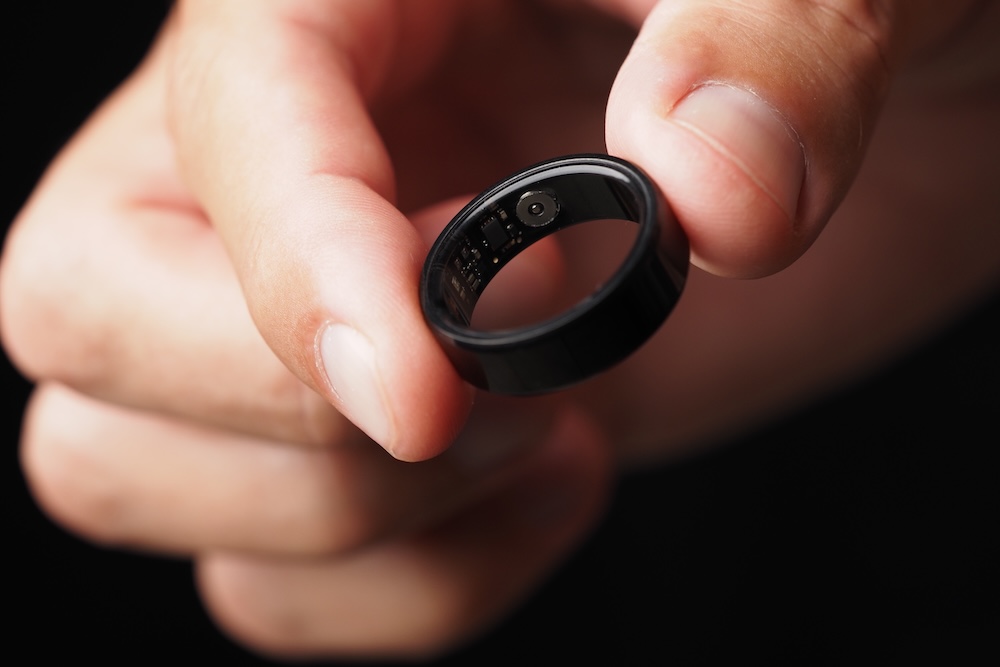
Wearable technology has long promised to help us lead healthier, more connected lives. While smartwatches and fitness bands have dominated the landscape, a new contender is quietly slipping onto the fingers of health-conscious individuals: the smart ring. For drivers, especially those who spend hours on the road, these compact devices offer a seamless way to monitor vital health metrics without the bulk or distraction of wrist-based wearables.
Smart rings and smartwatches both deliver valuable health tracking, but their differences are more than skin deep and justify distinct use cases, even if both devices share similar price brackets.
Smart rings excel in comfort, minimalism, and all-day, all-night wearability. Unlike smartwatches, which are bulkier and often require daily or near-daily charging, smart rings are small and discreet, making them easier to wear continuously without distraction. For sleep and fatigue tracking, rings actually offer superior sensor placement; your finger yields more reliable nocturnal data due to continuous snug contact, leading to more accurate sleep and HRV readings. They’re also easier to wear to bed or during repetitive tasks where a watch might feel bulky or catch on clothing.
On the other hand, smartwatches deliver broader features compared to smart rings for a comparable price: on-screen notifications, music control, GPS, app integration, and digital assistant functions, which smart rings can’t match. For those wanting multifunctionality: fitness analytics, productivity, and communication, a smartwatch represents a versatile investment. But for drivers or users who value comfort, battery life (up to a week), subtlety, and focused health metrics monitored 24/7, a smart ring is the far less obtrusive choice.
Ultimately, while a smartwatch offers more outside the car, a smart ring uniquely combines advanced biometrics, exceptional comfort, and unrivalled wear-and-forget discreteness, making it justifiable for those prioritising constant physiological tracking during active days and restful nights, especially for drivers who value undistracted, round-the-clock monitoring.
Smarter Monitoring for Modern Drivers
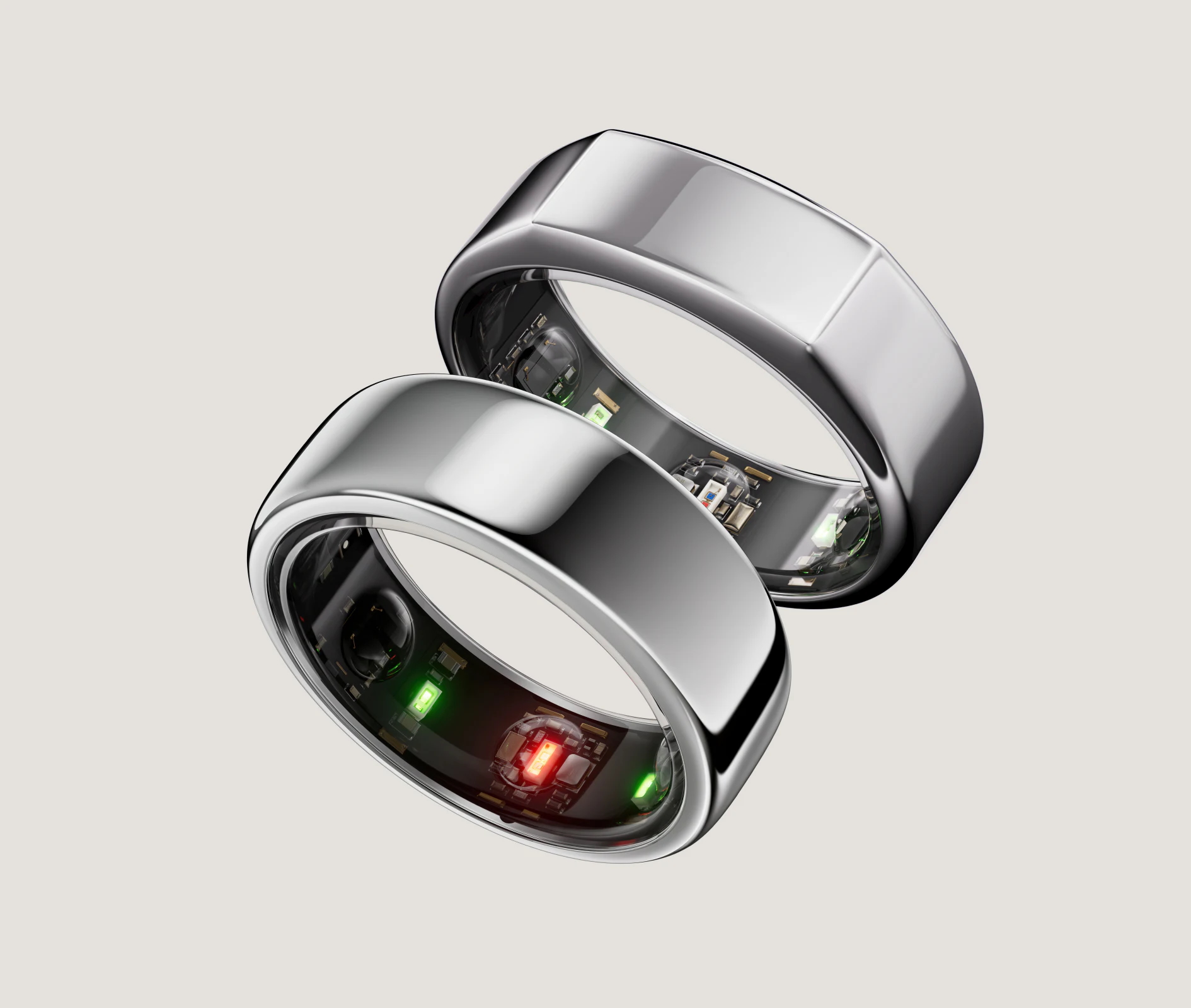
Long hours on the road can take a toll on both body and mind. Fatigue and stress remain major contributors to road accidents worldwide. While traditional fatigue management tools, such as electronic diaries or in-cabin cameras, have their uses, they’re limited by their manual nature and delayed feedback. Diaries rely on users to log entries after the fact, and camera systems require later review before action can be taken, offering little real-time insight.
By contrast, smart rings provide an instant, non-intrusive solution. Their discreet form factor and continuous physiological tracking enable drivers to receive timely insights on their fatigue and stress levels as they happen, rather than hours later.
Key benefits for drivers include:
- Continuous Fatigue Monitoring: Smart rings track physiological signals such as Heart Rate Variability (HRV), skin temperature, and sleep patterns, which are strong indicators of fatigue and stress.
- Early Warning Alerts: By analysing trends in your data, these devices can alert you when you’re at risk of drowsiness or elevated stress, prompting timely breaks and safer driving.
- Unmatched Comfort with Allergen-Safe Materials: Unlike wristbands or watches, rings are lightweight and less likely to interfere with steering or manual tasks. Most leading smart rings are crafted from hypoallergenic materials such as medical-grade titanium, premium ceramics, or non-metallic, medical-grade resin. This makes them well-suited for those with sensitive skin or allergies, and ideal for long, uninterrupted wear during drives. These thoughtful material choices enhance comfort, ensuring that drivers can enjoy continuous monitoring with minimal risk of skin discomfort or allergic reactions.
- Long Battery Life: Most smart rings last up to a week on a single charge, making them ideal for extended trips without frequent recharging.
Meet the Contenders: Top Smart Rings for Drivers
Samsung Galaxy Ring
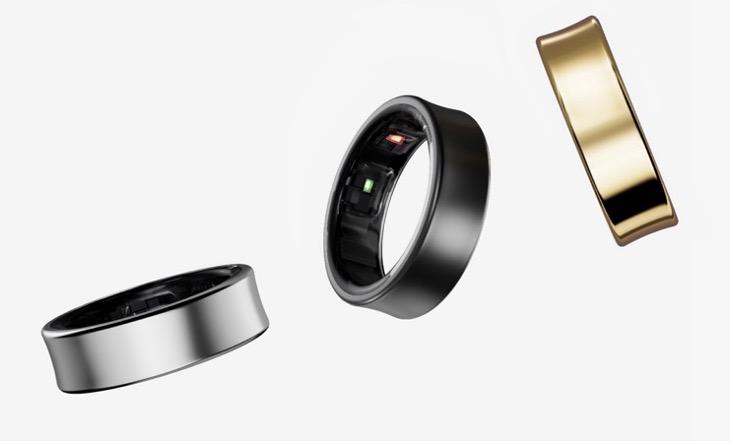
Samsung’s entry into the smart ring market has been met with enthusiasm, thanks to its blend of robust health features and seamless integration with the Samsung Health ecosystem. The Galaxy Ring continuously measures sleep, heart rate, skin temperature, and stress levels. It offers personalised insights and customisable alerts for high or low heart rates, and can automatically detect and record various activities.
For drivers, the stress monitoring function is particularly valuable. The Galaxy Ring uses biodata to assess your stress levels, and the Samsung Health app provides guided breathing exercises to help you recover during breaks. Its slim, comfortable design means it can be worn around the clock, even during long stints behind the wheel.
Price: S$538
Where to buy: https://www.samsung.com/sg/rings/all-rings/
Oura Ring Gen 3
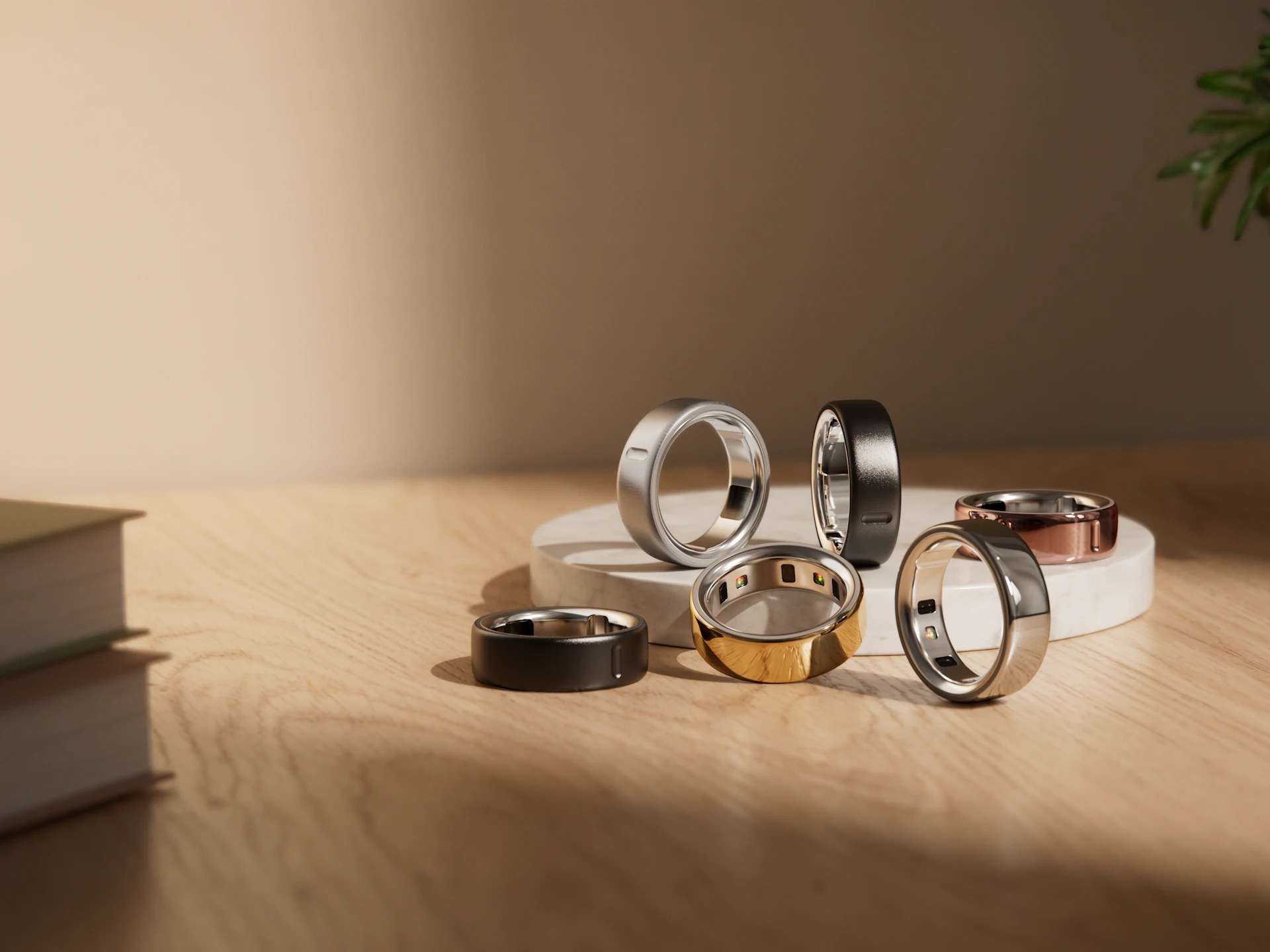
Oura has been a pioneer in the smart ring space, and its third-generation model sets the benchmark for health tracking in a discreet form. The Oura Ring Gen 3 features advanced sensors for heart rate, SpO2 (blood oxygen), temperature, and movement. It excels at sleep tracking, offering detailed analysis of sleep stages and overall sleep quality, critical for drivers who need to optimise rest between journeys.
The Oura app distils complex data into three simple scores: readiness, sleep, and activity. For drivers, the “readiness” score is especially useful, as it synthesises your recovery, sleep, and stress data to indicate whether you’re fit for a demanding day on the road. The ring’s week-long battery life and water resistance make it a reliable companion for any adventure.
Price: From SGD 250 (US$199)
Where to buy: https://ouraring.com/product/rings/oura-gen3/heritage
Ultrahuman Ring AIR

Image Credit: Ultrahuman
The Ultrahuman Ring AIR is a rising star, known for its lightweight build and focus on metabolic health. Crafted from titanium and weighing just 2.4 grams, it’s one of the lightest wearables available.
The Ring AIR tracks sleep, heart rate, HRV, and body temperature, and stands out with its integration with the Ultrahuman M1 glucose monitoring system, offering deep insights into how your lifestyle affects your metabolism.
For drivers, the Ultrahuman Ring AIR’s “Sleep Index” and “Movement Index” features provide actionable feedback on restfulness and daily activity, while HRV insights help gauge recovery and stress. The ring’s hypoallergenic design ensures comfort during long drives, and its six-day battery life means less worry about charging on the go.
Price: From S$450 (US$349)
Where to buy: https://www.ultrahuman.com/ring/buy/global/
How Smart Rings Monitor Fatigue, Stress, and Recovery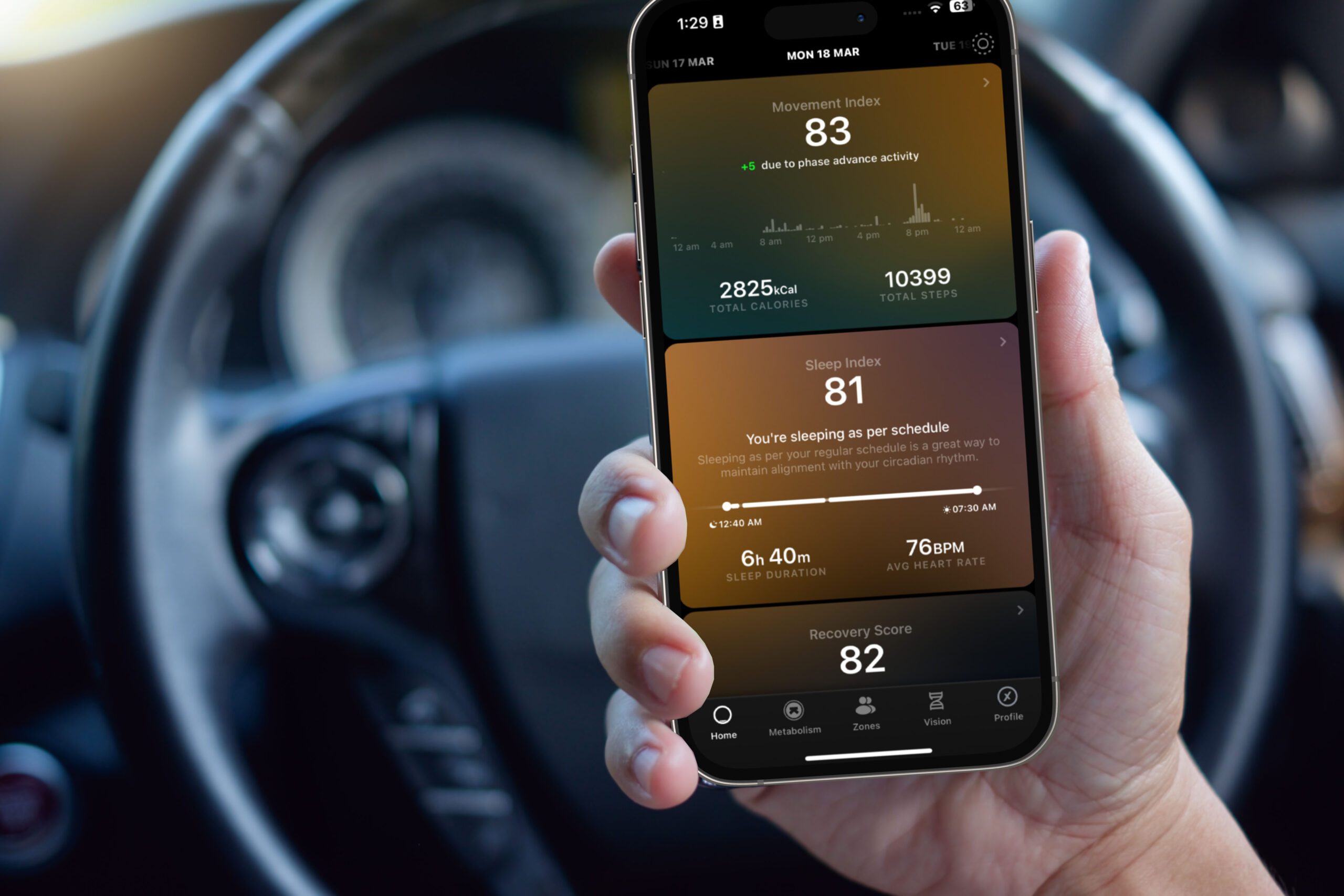
- Fatigue Detection: Fatigue is a silent hazard on the road, often creeping in unnoticed until it’s too late. Smart rings use a combination of HRV, sleep tracking, and temperature monitoring to detect early signs of fatigue. For example, a drop in HRV or poor sleep quality can trigger alerts, encouraging drivers to rest before fatigue becomes dangerous.
- Stress Management: Stress levels can spike during traffic jams, adverse weather, or long hauls. Smart rings continuously monitor physiological stress markers, providing real-time feedback and personalised suggestions for stress reduction. Guided breathing exercises and recovery tips in companion apps help drivers manage stress proactively.
- Recovery Optimisation: Effective recovery is crucial for drivers who need to stay alert day after day. Smart rings analyse your sleep stages, resting heart rate, and body temperature to assess recovery. Features like Oura’s “Readiness Score” or Ultrahuman’s HRV insights guide users on when to push forward and when to prioritise rest, reducing the risk of burnout.
Real-World Impact: Smart Rings on the Road
Recent studies on wearable technology highlight the transformative potential of these devices for driver safety and well-being. Continuous monitoring of physiological data not only helps detect fatigue and stress but also enables personalised interventions, such as reminders to hydrate, take breaks, or adjust daily routines. For long-haul drivers, this can mean fewer accidents, improved health, and a better quality of life.
Moreover, the discreet nature of smart rings addresses privacy concerns often associated with in-cabin cameras or intrusive monitoring systems. By empowering drivers to take charge of their health data, smart rings foster a culture of self-awareness and proactive wellness.
The Smart Ring Advantage: Beyond the Dashboard
Smart rings are more than just miniaturised fitness trackers. Their appeal lies in their ability to blend seamlessly into daily life, providing powerful health insights without drawing attention. For drivers, this means:
- No Distractions: No screens or buzzing notifications to divert attention from the road.
- Always-On Monitoring: Continuous data collection ensures no gap in tracking, even during sleep or showers.
- Style and Comfort: Sleek, minimalist designs mean you can wear them anywhere, anytime.
- Extended Battery Life: Days of use on a single charge, perfect for road warriors.
Choosing the Right Smart Ring for Your Drive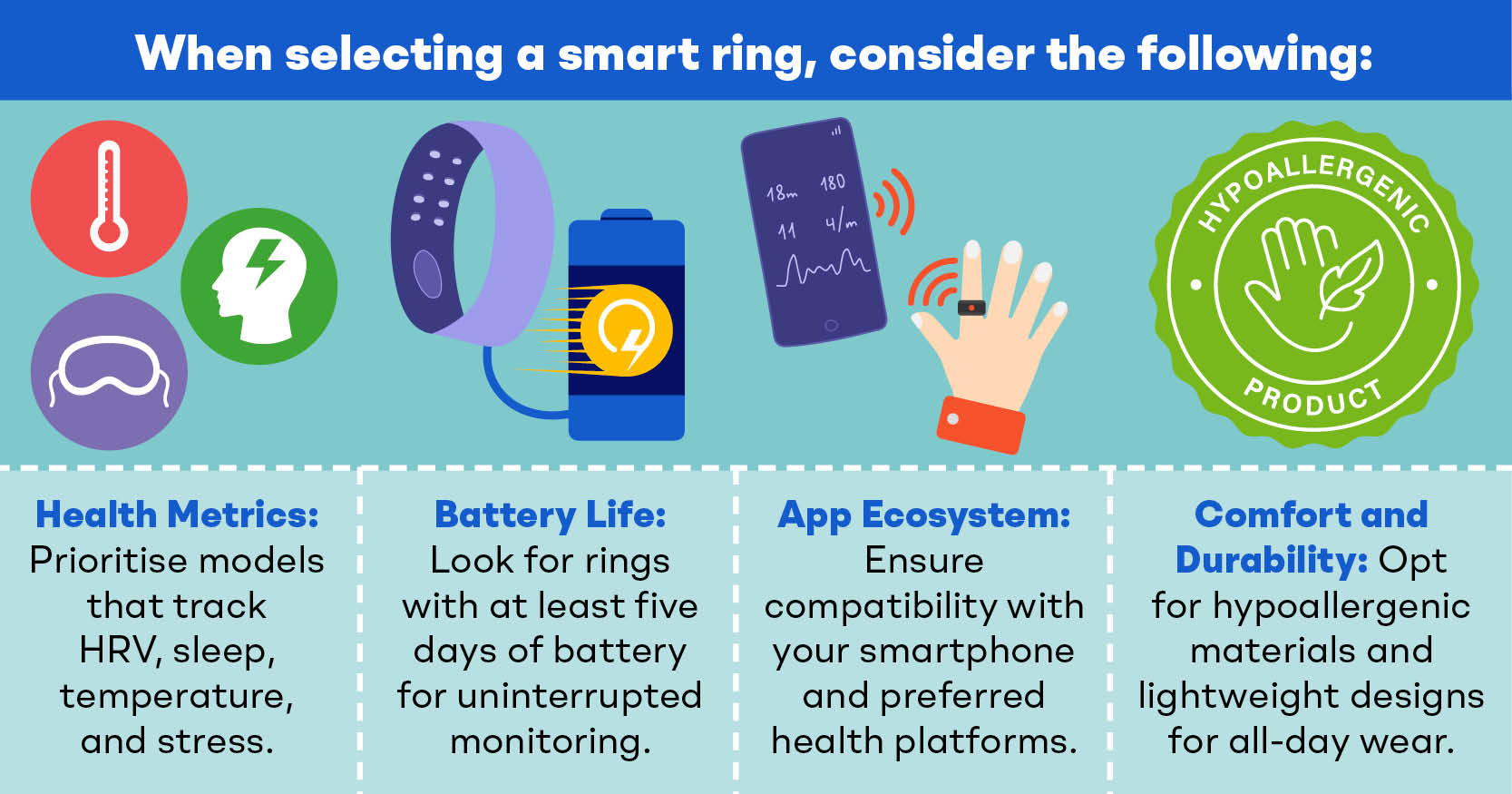
All three rings: Samsung Galaxy Ring, Oura Ring Gen 3, and Ultrahuman Ring AIR, excel in these areas, but each offers unique strengths. The Galaxy Ring stands out for stress monitoring and Samsung Health integration; Oura excels in sleep and recovery analytics; Ultrahuman shines with metabolic insights and ultra-light comfort.
The Road Ahead: Smart Rings and the Future of Driving Wellness
As wearable technology continues to evolve, smart rings are poised to play an even greater role in promoting driver safety and wellness. With ongoing advancements in sensor technology, AI-driven insights, and seamless app integration, these rings will become even more adept at detecting subtle changes in health and offering timely, actionable advice.
For health-conscious drivers, investing in a smart ring is more than a tech upgrade; it’s a commitment to safer, smarter, and healthier journeys. Whether you’re commuting to work or embarking on a cross-country adventure, a smart ring could be the secret weapon that keeps you alert, balanced, and ready for the road ahead.



